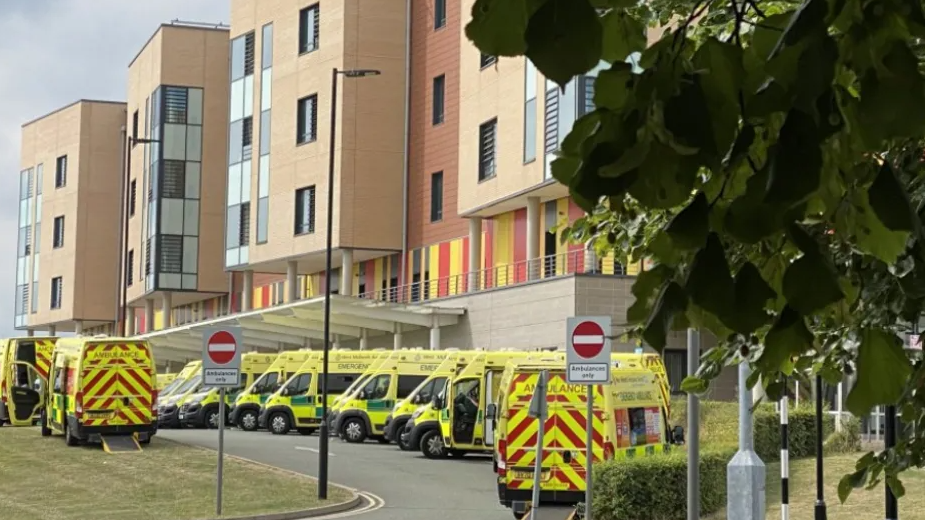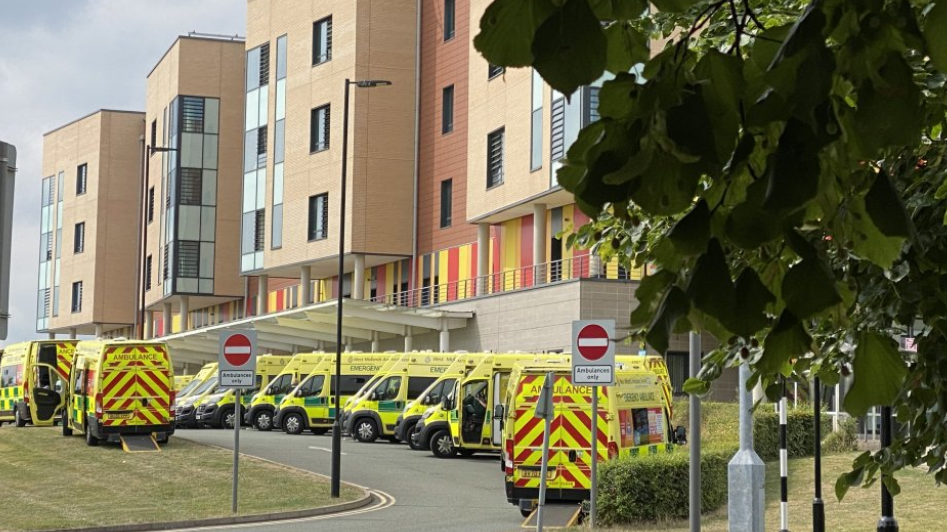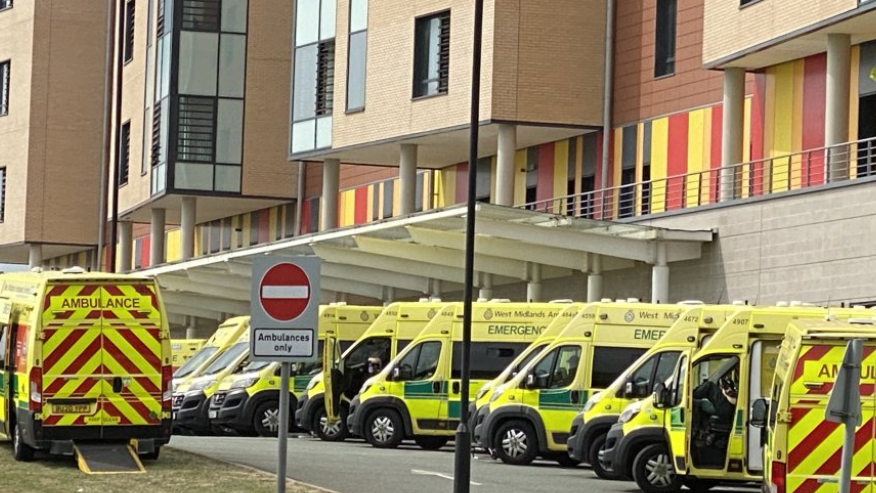Extreme challenges remain in A&E

The trust has already declared five critical incidents this year
- Published
Hospital bosses in Staffordshire say they are still facing "extreme challenges" in A&E after declaring two critical incidents in a month.
University Hospitals of North Midlands (UHNM) declared its latest critical incident at the Royal Stoke and County Hospital sites on Monday due to a high demand for services, just four weeks after taking the same action on 19 June.
Chief operating officer Simon Evans told a UHNM board meeting that urgent and emergency care performance had improved this year, with the trust seeing more than 70% of patients within four hours in March, April and May.
The trust is still asking people to only use A&E in a serious or life-threatening emergency.
Reaching that target earlier this year was the first time UHNM had achieved that level of performance over three consecutive months since 2021.
But Mr Evans said that the high demand for emergency care was still resulting in long waits for patients - there were 25,548 attendances in May.
It is hoped the launch of the new Same Day Emergency Care (SDEC) unit next month will also help.
"There are some really positive developments. We’ve continued our streak with the four-hour performance, with some of the best figures since 2001," he said.
But he admitted that "underneath" there were issues with long waits in the department, overcrowding and an impact with ambulance handovers.
"We have found that in the summer months, June and July, we have had some extreme challenges on the urgent and emergency care pathway," he added.
Actions taken to tackle the problem have included improving the efficiency of the emergency department, and reducing attendances by directing more patients to services in the community.
Declaring a critical incident allows UHNM to take additional measures to deal with increased demand for emergency care, but this can mean much longer delays for some patients, as the most ill are prioritised.
This news was gathered by the Local Democracy Reporting Service which covers councils and other public service organisations.
Follow BBC West Midlands on Facebook, external, X, external and Instagram, external. Send your story ideas to: newsonline.westmidlands@bbc.co.uk, external
Related topics
- Published9 July 2024

- Published13 February 2024
